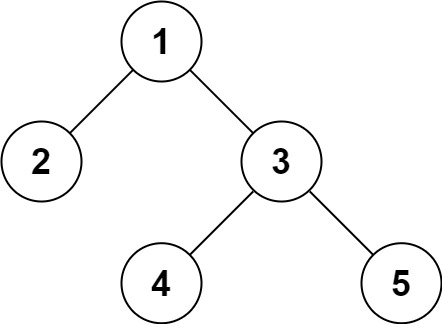Serialization is the process of converting a data structure or object into a sequence of bits so that it can be stored in a file or memory buffer, or transmitted across a network connection link to be reconstructed later in the same or another computer environment.
Design an algorithm to serialize and deserialize a binary tree. There is no restriction on how your serialization/deserialization algorithm should work. You just need to ensure that a binary tree can be serialized to a string and this string can be deserialized to the original tree structure.
Clarification: The input/output format is the same as how LeetCode serializes a binary tree. You do not necessarily need to follow this format, so please be creative and come up with different approaches yourself.
Input: root = [1,2,3,null,null,4,5] Output: [1,2,3,null,null,4,5]
Input: root = [] Output: []
- The number of nodes in the tree is in the range
[0, 104]. -1000 <= Node.val <= 1000
# Definition for a binary tree node.
# class TreeNode(object):
# def __init__(self, x):
# self.val = x
# self.left = None
# self.right = None
class Codec:
def serialize(self, root):
"""Encodes a tree to a single string.
:type root: TreeNode
:rtype: str
"""
nodes = [root]
i = 0
while i < len(nodes):
if nodes[i] is not None:
nodes.append(nodes[i].left)
nodes.append(nodes[i].right)
i += 1
return ','.join('N' if node is None else str(node.val) for node in nodes)
def deserialize(self, data):
"""Decodes your encoded data to tree.
:type data: str
:rtype: TreeNode
"""
nodes = [TreeNode(int(x)) if x !=
'N' else None for x in data.split(',')]
i = 0
j = 1
while j < len(nodes):
nodes[i].left = nodes[j]
nodes[i].right = nodes[j + 1]
i += 1
j += 2
while i < j and nodes[i] is None:
i += 1
return nodes[0]
# Your Codec object will be instantiated and called as such:
# ser = Codec()
# deser = Codec()
# ans = deser.deserialize(ser.serialize(root))